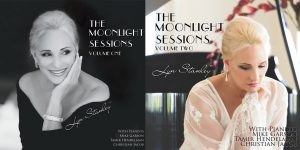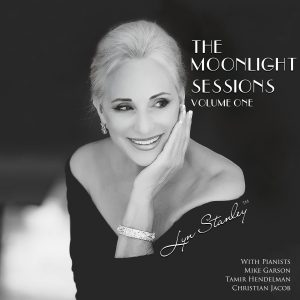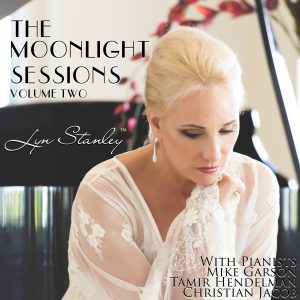John Huxhold and Eric Meyer
With this contribution, Positive Feedback adds more to its music review community select contributions from NativeDSD.com's volunteer writers. This review was originally published as part of the "Call for Reviewers" programme initiated by NativeDSD.com. Eight carefully selected DSD listening reviewers have been writing for Blog.NativeDSD.com since late 2017.
The focus of these writers will be on their favorite DSD releases at NativeDSD. My love of DSD is well known, and many Positive Feedback readers share my deep appreciation for DSD as a reference format. These reviews should help all of us to be aware of some very worthy DSD titles that can be found and purchased at that site.
This second NativeDSD review is by the team of John Huxhold and Eric Meyer. John Huxhold is retired from a career teaching college English in St. Louis, Missouri. For many decades he has enjoyed piano and pipe organ lessons, singing in choirs, going to concerts, and hanging around hi-fi shops. Since 1975 his classical music reviews and articles have appeared in the St. Louis Post-Dispatch and The American Record Guide. Eric Meyer is a college professor living in St. Louis, Missouri, where he teaches writing, literature, and film. He studied music in college before switching to English and film. He has written on music and has performed in college and municipal orchestras in the St. Louis region.
This review can be seen in its original publication at http://blog.nativedsd.com/published-call-for-reviewers-part-4/. Information on purchasing this title in DSD, all the way out to Quad DSD, is available there. Note that this album is exclusively available in DSD at NativeDSD (in DSD 64, 128, 256 - stereo & multichannel), and is not available on SACD.
We welcome John and Eric to the pages of Positive Feedback!
Lyn Stanley, Moonlight Sessions, Volumes 1 and 2. Reviewed in Stereo DSD 128
John Huxhold & Eric Meyer
In an already crowded field of female jazz vocalists, Lyn Stanley is creating some impressive room for herself. Since embarking on a second career as jazz singer in 2013, Stanley has recorded five albums. The latest two, The Moonlight Sessions Volume 1 & 2 released in 2017, show Stanley reaching both musical and recording/engineering maturity. Jazz fans and audiophiles alike will find much to love within these two volumes.
Among the most laudable aspects of the albums are Stanley's calculated artistic risks. Many of the jazz standards are thoughtfully interwoven with themes from classical music by Chopin, Debussy, Mozart and others. "Over the Rainbow" (Vol. 2), for example, starts with a theme from Debussy's "Clair de Lune". Parts of Debussy's composition appear throughout the song, interlaced with the "Over the Rainbow" melody. The result is an insightful reinterpretation of a standard song, and is alone worth the price of the download. Other instances include "Summer Knows" (Vol. 2), which starts with the familiar melody from Mozart's Symphony No. 40, and "How Insensitive", which uses Chopin's Prelude in E minor. This technique gives the standards a refreshing depth and complexity without losing the simplicity of the original—very keenly done.
The Moonlight Sessions Volume One
Not all her artistic gambles turn out as well. Changing up traditional tempos and rhythms often proves delightful, but some of Stanley's slower bossa nova rhythms, for example, seem sluggish rather than charming. "Smile" (Vol. 2) in particular generates a musically uncanny feeling with its listless bossa nova pulse. The already mentioned 'How Insensitive' appears on both volumes; on the first, it starts with piano, guitar and harmonica and takes a slower tempo; on Volume 2, 'How Insensitive' starts with a much longer and more interesting solo piano intro, which eventually leads into a more “natural,” faster bossa nova rhythm—much better. Not all will agree, but the fun for Stanley and for listeners alike is just such comparisons.
As insightful as the arrangements are, Stanley's voice, of course, is the real key to these albums. She has wide, high quality vocal range with the ability to sing crystal clear highs in one phrase, then smoky, sultry lows in the next. In "Angel Eyes" (Vol. 2) and "My Funny Valentine" (Vol 1), for example, Stanley demonstrates impressive control over her voice, singing with clarity, texture, and pleasing vibrato—all leading to that essential emotional connection with listeners. Stanley's musicians, too, are equally talented. She spared no expense here. From extended intros incorporating classical music to nuanced solos, the instrumentalists provide sensitive accompaniment to Stanley's expressive performance.
The Moonlight Sessions Volume Two
Audiophiles will be very happy with this high-res DSD 128 Stereo download. The close attention to recording and engineering provides a quiet background with a very stable, naturalistic soundstage that brings Stanley and the instruments transparently into the listening space. Volume 1 seems a bit bass-heavy, even boomy at times. On "All or Nothing at All", for example, even Stanley's voice seems distorted on the low end. Volume 2 seems a distinctly better-balanced recording.
Although both volumes of The Moonlight Sessions are worth owning, the second volume is an absolute must-have, and Lyn Stanley is an absolute must-follow as she continues her second career as a proven jazz vocalist interested in thoughtful reinterpretation of jazz standards and high-quality, audiophile recording.
All images courtesy of NativeDSD.com.





































